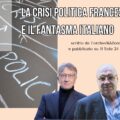The Commission was represented by four members, Reinsch, Shea, Wortzel, and Bartholomew. In opening statements, Reinsch provided on overview; Shea focused on maritime issues, Wortzel on military matters, and Bartholomew on foreign policy and the Middle East. Reinsch noted that the recent leadership change in China is the most significant event of 2013. Proclaimed shifts from export emphasis to domestic consumption are welcome and overdue; implementation will take time as directives filter down. The shifts in control of the military may not be so benign. Chinese foreign direct investment at this point is relatively small but growing exponentially. Shea discussed maritime disputes and cross-strait issues. While China-Taiwan relations have been generally positive this year, Chinese naval preparedness grows, China is delaying resolution of disputes with Taiwan while strengthening its military capabilities to alter the balance of power; a major naval modernization is underway. Wortzel noted the military modernization and that the PLA can go farther afield and is more formidable in all spheres, including cyber warfare. The goal appears to be to limit US influence in the region. Bartholomew noted China’s increasingly assertive foreign policy, often related to its demand for energy, and its growing competition and sometimes challenge to US interests. Half of China’s crude oil comes from the Middle East/North Africa. As might be expected from the Armed Services Committee, most questioning focused on Chinese military capabilities; as one member stated, “No matter the intentions, we have to plan for their capabilities.” In response to questions, Shea and Wortzel both referenced Chinese steps that could deny access to the Western Pacific Ocean by the US military and prevent US interventions outside of current Tomahawk missile range. This could have major implications with respect to oil supplies for India. Reinsch and Bartholomew both mentioned a possible goal of recapturing China’s historic influence, and whether China could transition from a regional to a global power (note China’s roles in dealing with Somali pirates, where China was also protecting its own interests, and in UN peacekeeping). All panelists noted the large differences between Japan and China, even though both used the same economic growth model (export-driven). China is authoritarian and engaged in cyber attacks. Within the Commission, there is a strong consensus on the security aspects of the relationship. In response to a question from Mr. Conway about China’s weaknesses, Reinsch cited demographics, domestic pressures on environmental issues, and corruption. Corruption is an integral part of the regime and cannot be combated without endangering party control. Shea cited debt; there is no way to know how much debt is in the system and China is opaque. China has also not demonstrated any innovation culture. Wortzel said that China has been unable to master metallurgy and other technical challenges for modern systems, from turbines to networks. All of the panelists stressed the importance of maintaining a strong US military presence in the region (“what if Japan were not under the US protective umbrella?”), to maintain confidence in US commitments in the region . China’s activities in the South China Sea will remain problematic, and in the short run their behavior may help the US but in the longer term there is a fear the US will leave. China sees the US as in slow decline and struggling to meet obligations, but the US still has the best and the most of everything. China’s military is totally unpracticed whereas the US military is the standard for the world. Members also asked about concerns specific to their districts.
Economics
Summary U.S. House of Representatives Committee on Armed Services Hearing on 2013 Report of the U.S.-China Economic and Security Review Commission November 20, 2013
Alberto Forchielli27 Novembre 20130
Share
















